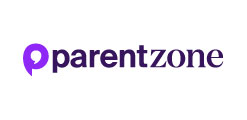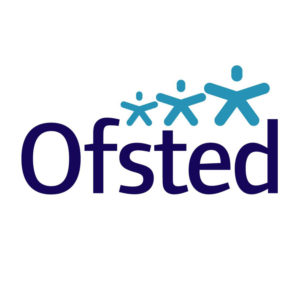Chapter Contents
- Home Health & Safety Check
- Health, Hygiene and Daily Routines
- Hazardous Substances
- Fire Safety
- Smoking, Alcohol and Drugs
- Sexuality and Sexual Health
Home Health & Safety Check
ISP has a duty to secure the health, safety and welfare of our staff, children, young people and families and any others who use our service. We therefore carry out a health and safety check at all fostering households to ensure that your home provides a safe environment for children and young people. This check will happen when you are first assessed to be a foster parent, and as part of your annual review process.
The health and safety check is not about the removal of all risk but about reducing risk to a reasonable level. If we identify any hazards, we will help you to meet and maintain the required standard of safety for us to place children in your care.
Complete the mandatory training course: Health and Safety in the Home
Please also see the Health and Safety chapter of the Foster Parent Handbook, and our Safety in the Home page.
Health, Hygiene and Daily Routines
Foster parents are active role models for children in their care. Promote a healthy lifestyle with a good diet, exercise, physical and emotional health. Some children will have specific dietary requirements to meet their cultural or religious needs, or personal preferences.
Hygiene within the home is important, e.g. food preparation, cleanliness in the home and medical attention. Wear gloves when cleaning up any bodily fluids.
Daily routines provide stability, consistency and predictability for children and young people. This helps them to know and understand what to expect from adults within the foster home. In turn, children will often feel safer and develop trust in their foster family. It is important that foster parents work together to agree an approach to daily routines based on individual children’s needs, such as meal times, bedtimes and bath times. Involving children in decisions promotes their sense of family membership and co-operation, raising their own sense of feeling valued.
Training opportunities: Food Safety and Hygiene, and Infection Prevention and Control. Book on Learnative.
Hazardous Substances
During the assessment process, you will discuss how hazardous substances (e.g. cleaning chemicals) and medication are to be stored at home. This will be revisited when your Household Health & Safety Risk Assessment, is reviewed. Always remain vigilant about the risk of these to a child or young person, whether through accident or deliberate action.
Store all medication securely away from children. This usually means a locked cupboard in the home, and all family medication should be stored in the same way. Whenever you give children medication, ensure that you keep a record of this on Charms.
It is helpful for children to know what will happen if they are ill, particularly children who show health anxieties. Talk with them about your First Aid training, medicines that you keep at home, and how you can call a doctor if they are not well. Encourage them to tell you if they are feeling unwell.
Fire Safety
Make sure all household members know what action to take in the event of a fire. We will help you to develop a Fire Evacuation Plan as part of the Household Health & Safety Risk Assessment. Share this with children and young people.
Smoking, Alcohol and Drugs
Please also see our Alcohol, Drugs and Smoking Chapter.
Smoking (including electronic cigarettes)
Foster parents are role models for children and young people in their care. If a foster parent or a member of the fostering family smokes (including electronic cigarettes), they cannot be approved to care for children under the age of 5 or who have medical conditions that impact their respiratory system.
In the event that foster parents smoke, this should never be in front of a fostered child. Foster parents and other family members must not smoke within any part of the foster home.
Young people may experiment with smoking or may already smoke at the time of placement. In these circumstances, discuss with them where they should keep their cigarettes and lighters to protect any younger children in the home. Make sure they know that they must not smoke anywhere in the home.
You can advise young people in reducing and hopefully ceasing to smoke, however this needs a sensitive and supportive approach. Discourage them from smoking and vaping and ensure they are aware of the potential health risks. This includes providing information about the health benefits of stopping smoking and vaping.
It is against the law to purchase cigarettes for any young person under the age of 18, and you must not buy tobacco or smoking products for young people.
See our Smoking Policy for more information.
Alcohol
Children may have had negative experiences of alcohol. Let them know what the rules are at home, and be a positive role model for safe and appropriate use of alcohol.
Store alcohol in the home safely and securely. How this is achieved will depend on the age and individual vulnerability of the child or young person. Your supervising social worker will discuss this with you and record the arrangements in the young person’s risk assessment.
Do not give young people in your care alcohol without the express written permission of the local authority, who will decide whether this is permitted and under which circumstances.
Drugs
Children may also have had negative experiences of the use of illegal drugs, either personally or due to parental use. They will need to know what the rules are in your home, and that they must never bring drugs into the foster home. Ensure that they know that you must notify the police, ISP and their social worker of any such incidents.
It is also important to remember that many prescribed drugs are addictive and have negative side effects. Store all prescribed medication safely and securely.
See our policies for more information.
Training opportunity: Smoking, Drugs and Alcohol – Book on learnative.
Sexuality and Sexual Health
Young people need to feel comfortable to ask you anything they are unsure of. You can help them to feel comfortable by being non-judgmental and showing by what you do and say, that you value diversity in all its forms. Create an atmosphere of respect and opportunity for children to share any questions or worries about their sexual development, or sexual orientation. Equip children with the skills to be in control of their bodies and their relationships.
Regarding specific children, take advice from the child’s social worker about the best way of approaching these issues with them. Be aware of any cultural, gender or sexual orientation factors for the child which may be different to your own. Where there is a history or concern about potential sexually problematic behaviour your supervising social worker will include strategies to minimise any risks in the child’s risk assessment.
Ensure that any sex education material available to children promotes and encourages healthy lifestyles and images of men and women that are positive and encouraging. We recommend resources published by the FPA (Family Planning Association).
Sexual health services
Young people can access confidential sexual health advice from local sexual health clinics. If the young person is under 16 they are still afforded this right to a confidential service, subject to the health professional judging them to be competent in accordance with Fraser Guidelines, and in the absence of any concerns about sexual exploitation. A young person who is sexually active should be encouraged to access professional advice in order to minimise the risk of unwanted pregnancy and sexually transmitted infection.
Please also see our Sexuality & Sexual Health chapter.
See our Sexual Health – Consent and Confidentiality Policy for more information.
If you suspect, or know a child to be pregnant you should notify your supervising social worker. They will consult the child’s social worker and decide on the actions that should be taken, and support the young person in their decision-making.
If you know, or suspect a child to have a sexually transmitted infection, you should notify your supervising social worker immediately. They will discuss the issue with the child’s the supervising social worker and decide what action to take.
Pornography and indecent images
Some young people will attempt to access sexually explicit (pornographic) material as they explore their sexuality. From a sex education viewpoint, pornography is not a positive influence as it does not promote healthy sexual relationships. It is therefore advisable to apply parental controls to the home Wi-Fi and young people’s mobile phones to limit their exposure to these images. Be prepared to discuss issues around pornography with young people.
If you find that a young person has pornographic or indecent images that you suspect might be illegal, notify ISP immediately. Confiscate the material/images pending investigation, which might include safeguarding procedures. If the images are on a mobile phone/tablet/computer then you should confiscate the device and switch it off. Under no circumstances should you send the images electronically to any other device as this may constitute a criminal offence.
Relationships between young people in the foster home
Consider the possibility that young people placed together might develop a sexual relationship, or be attracted to each other.
- When considering the placement of children alongside other children, managers must assess the risk of sexual relationships developing and ensure strategies are in place to reduce or prevent these risks if they are likely to be exploitative or abusive
- Where children are placed together with no identified risk of exploitative or abusive behaviour, you should monitor any developing relationships, sensitively. Discourage children from engaging in under-age sexual relationships
Overall, be mindful of your duty to consider the welfare of children. This may mean recognising that illegal activity is taking place and working to minimise risks and consequences. If you suspect that a child is engaging in illegal behaviour , or may be experiencing sexual exploitation, discuss this immediately with your supervising social worker, who will consult the child’s social worker. They will consider consulting the Child Protection Agencies.
Training opportunity: Promoting Sexual Health – Book on learnative.



